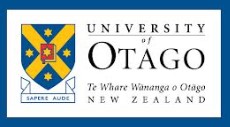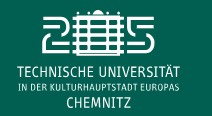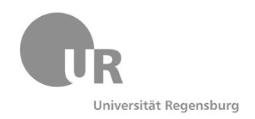Trust has become one of the most widely researched topics in organization studies (de Jong, et al., 2017). Often broadly understood as the willingness to make oneself vulnerable to the actions of another party (Mayer, et al., 1995; Rousseau, et al., 1998), trust plays a central role in virtually all intra- and inter-organizational interactions. Prior research suggests that trust can alleviate concerns of opportunism, which reduces inter-partner conflict and transaction costs (Anderson, et al., 2017; Zaheer, et al., 1998). Although the study of trust represents a long-standing area of inquiry in organization studies, several recent technological advancements and geopolitical developments have dramatically changed the landscape in which trust is embedded, pointing to the need for a re-examination and extension of earlier accounts.
Perhaps most notably, the ongoing Fourth Industrial Revolution (Schwab, 2017) is fundamentally altering both economic transactions and social exchange (Meyer & Quattrone, 2021). Supported by unprecedented degrees of connectivity and processing of vast amounts of data (Hanelt, et al., 2021), digital technologies provide significant opportunities to re-design work and develop more open, flexible, and scalable organizing; however, their fast development and complexity also create considerable uncertainty for organizations. Digital technologies are transforming the nature of human interactions (Iansiti & Lakhani, 2020), with profound impacts on organizations, organizing, and the organized (Alaimo, forthcoming). Specifically, there are reasons to believe that digital technologies may cause trust to become more institution-based (Lumineau, et al., 2020), with formal mechanisms substituting for a history of interpersonal exchange as the source of trust. For instance, digital platforms facilitate trust between strangers (Abrahao, et al., 2017; Kuwabara, 2015; Mikołajewska-Zając, et al., forthcoming), blockchains can automate agreements with unknown partners (Hsieh, et al., 2018; Lumineau, et al., 2021), and artificial intelligence (AI) helps in assessing partners’ trustworthiness (Liu, et al., 2014). As a result, trust may become comparatively less personal (Seidel, 2018; Vanhala, et al., 2011) and more embedded in the institutional environment (Bachmann & Inkpen, 2011).
These technological developments come amidst unprecedented levels of geopolitical uncertainty and an accelerated decline of trust in institutions (Citrin & Stoker, 2018). Thought of as a relic from the past, a new cold war seems to be possible again. The Russian invasion of Ukraine exemplifies how key tenets of the economic world order—such as globalisation, free trade, and democracy—are more fragile than many assumed. What is more, China has emerged as a new superpower that is increasingly demanding its share of the global system of power and influence, leading to tensions and new challenges. The world has been massively shaken by a pandemic that has demonstrated the instability of trust in the absence of strong institutions (Fancourt, et al., 2020) while highlighting the critical need for various forms of trust in times of distress (Schilke, et al., 2021). In parallel, climate change will force humanity to completely rethink our energy sourcing, with a substantial impact on almost every industry, transportation, and private consumption, and trust in reliable institutions may represent a critical mechanism supporting proenvironmental behaviour that could address this challenge (Smith & Mayer, 2018).
Our theories of trust in organizations and processes of organizing need to reflect these transformative changes. Against this background, we believe it is both important and timely to
reassess the role of trust in intra- and inter-organizational settings to better understand how
relevant contemporary developments affect and are affected by trust. The ongoing disruptive
technological, political, and societal changes that are affecting organizations call for revisiting
the very concept of trust, along with its consequences and the processes that underly its
development, maintenance, and repair.
Objectives
The objective of this Special Issue is to serve as a focal point for theory development on and
empirical insights into the various ways in which trust and uncertainty intersect, with a special
emphasis on the role of institutions in explaining the interface between the two.
Scope
The Special Issue invites submissions that make substantial contributions to our understanding of trust in organized settings. We embrace a wide variety of theoretical and methodological approaches. The range of theoretical orientations may include institutional, structurationist, ethnomethodological, sociomaterial, phenomenological, and beyond. Diverse methodological approaches are welcome, including case studies, experiments, secondary data analyses, and surveys. Purely conceptual papers, empirical investigations, and combinations of theoretical and empirical research will also be considered. Our interest is directed toward trust at various analytical levels (i.e., micro, meso, and macrolevels), as long as organizations or organizing have a central place in the analysis. At the micro level, for instance, we find it worthwhile to revisit the role of ‘facework’ (Giddens, 1990), boundary work (Weber, et al., forthcoming), and rituals (Collins, 2004; Krishnan, et al., 2021) in organizational settings, as such analyses will be clearly geared toward a better understanding of the relationship between trust and institutional arrangements in uncertain contexts.
Below, we list a total of nine exemplary research topics that we believe will provide useful springboards for contributions that fit the scope of the special issue. However, submissions do not have to be limited to these themes.
Potential Research Topics [more details of each of them in the full Call for Papers]
- Uncertainty and trust
- A broader understanding of institution-based trust
- Platform-enabled institutions and trust
- Micro-level mechanisms of the trust and institutions nexus
- Trust of meso-level institutions
- Macro-level institutions and trust
- Institutionalisation of trust
- Erosion of trust in institutions
- Digital technologies and trust
Guest Editors:
- Oliver Schilke
- Reinhard Bachmann
- Kirsimarja Blomqvist
- Rekha Krishnan
- Jörg Sydow
Deadline for submission: 30 June 2023.
View the complete Call here.









